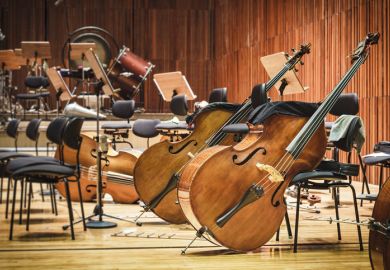Daniel Melamed has brought together essays by 12 internationally distinguished Bach scholars. Established authorities and younger contributors are represented in a rich and readable compilation of some of the latest findings in the enormous field of Bach scholarship. It will be invaluable to students, teachers, those preparing performances of the works discussed, and those who simply wish to know more about Bach.
Some chapters look at specific works in detail; others explore Bach's relationship to, and reception of music by his predecessors and contemporaries. Christoph Wolff's "J. S. Bach and the legacy of the 17th century" paints a convincing picture of Bach as a "universal musician" in a 17th-century sense (comparing Michael Praetorius and Buxtehude), who had a great respect and use for "old" music, and who shared with 17th-century scientists and philosophers a concern with the pursuit of perfection. Yet Bach also subscribed in some measure to 18th-century ideas of musical progress. As Wolff concludes, he "truly brought the legacy of the 17th century into the 18th".
The essays by Michael Marissen and Paul Walker are both concerned with the Musical Offering, that remarkable composition based on the king's own "right royal theme" which Bach dedicated to Frederick the Great. As well as pointing up the considerable divergences in outlook and taste between Bach and Frederick, Marissen has much of value to say about what he considers to be the theological character of the work. Walker's chapter "Rhetoric and the ricercar" concerns itself largely in demolishing the arguments put forward in the late 1970s by Warren and Ursula Kirkendale about the relationship of classical Latin rhetoric and the two ricercars of the Musical Offering.
Gregory Butler's chapter looks at the influence on Bach of Albinoni's concertos, and thus helps to put the undeniably important Vivaldian influence into perspective. Another chapter dealing with matters structural is Jeanne Swack's perceptive consideration of the A major flute sonata, a work whose autograph score is incomplete. Butler shows the extent to which Bach improved upon Albinoni, and Swack's analysis of the solo/ritornello relationships in the first movement of the flute sonata leave one gasping at Bach's inventive formal mastery.
Ulrich Leisinger considers the concept of "unity in variety" as propounded by the philosophical writings of Leibniz (which Bach may or may not have known), and uses these ideas to interpret and explain the multiplicity of musical types found in the St Matthew Passion. Joshua Rifkin's piece on the little-known Trauerode concerns itself with performance practice; like much good scholarship, it raises more questions than it answers. One quibble: Rifkin's footnotes, all 1 of them, are almost as extensive as his text. Many seem unnecessary, particularly those citing related articles. There are many instances of mutual citation in this volume; is there a hidden agenda?
Kirsten Beisswenger writes engagingly and lucidly on an unknown early version of the first movement of the Italian concerto and the volume's editor, Daniel Melamed, on an extraordinary 36-voice canon in the hand of C. P. E. Bach. Perhaps esoteric, this article nonetheless contains numerous fascinating observations and sheds a little more light on Bach's canonic fascinations in the 1740s. Yo****ake Kobayashi suggests that the principle of growth is fundamental to the structure of the variations of the Passacaglia in C minor, a view which makes more sense, certainly to a performer, than previous "symmetrical" analyses.
John Butt offers enlightening thoughts on Bach's relationship with his contemporary Georg Friedrich Kauffmann, and Peter Wollny corrects the widely-held view that Bach's cantatas were immediately neglected after his death, giving a fascinating glimpse into W. F. Bach's reworkings for performances in Halle of some of his father's music.
These very different and complementary essays underline yet again the breathtaking universality of Bach's genius and the seemingly endless interpretative possibilities inherent in his legacy.
John Kitchen is senior lecturer in music and university organist, University of Edinburgh.
Bach Studies 2
Author - Daniel R. Melamed
ISBN - 0 521 47067 6
Publisher - Cambridge University Press
Price - £35.00
Pages - 238
Register to continue
Why register?
- Registration is free and only takes a moment
- Once registered, you can read 3 articles a month
- Sign up for our newsletter
Subscribe
Or subscribe for unlimited access to:
- Unlimited access to news, views, insights & reviews
- Digital editions
- Digital access to THE’s university and college rankings analysis
Already registered or a current subscriber?



